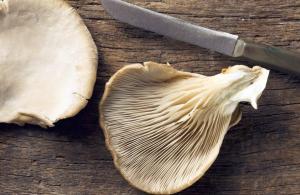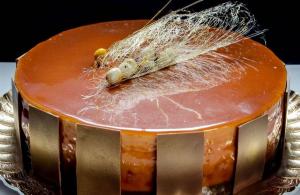Do you love to drink a cup of aromatic coffee in the morning and during your lunch break? But now, when you learned the great news that in a few months you will become a mother, you began to worry that this habit would have a bad effect on the health of the child. Our article will help you understand this issue and understand why coffee can be dangerous at this important moment.
Can pregnant women drink coffee?
In order to understand whether drinking this drink in an interesting position is harmful, you need to know that coffee increases blood pressure and has a diuretic effect, promotes the excretion of beneficial minerals such as calcium and iron, and can cause heartburn. And since a woman’s condition differs during different periods of pregnancy, we will analyze each trimester separately
In the early stages
In the first trimester, very important changes occur in a woman’s body. During this period, you need to be extremely careful, reconsider your diet and do everything so as not to harm yourself and your unborn child. 
Until now, doctors have not come to a consensus about the effect of coffee on the developing fetus, but research in this area clearly shows that if you drink an invigorating drink in small quantities, there is practically no harm.
Important! The tonic properties of the drink can lead to increased uterine tone, which increases the risk of miscarriage.
Very often, the 1st trimester is accompanied by toxicosis, and if you have it, then it is best to stop drinking the drink. The thing is that coffee increases the amount of saliva, which is already increased due to nausea. In addition, at this stage it is important to increase the saturation of the expectant mother’s body with vitamins and minerals, and coffee in large quantities will harm their balance.
In the second trimester
This stage is characterized by a calm course, since the woman’s body has become accustomed to its new status, and the main organs of the fetus are formed. But we must not forget that it is in the second trimester that the rapid growth of the bone mass of the future little man begins.  And we all know that the building material in this case is calcium, so watch the number of cups of coffee drink per day, otherwise there will be a shortage of this important element.
And we all know that the building material in this case is calcium, so watch the number of cups of coffee drink per day, otherwise there will be a shortage of this important element.
Important! If you drink coffee, be sure to add milk or cream, which are sources of calcium. This will make up for possible losses.
In the third trimester of pregnancy
In the later stages, special care and utmost attention are required from you. It is very important to monitor your weight and blood pressure. Doctors definitely recommend stopping drinking this drink. After all, it contains caffeine, which increases blood pressure and excites, which can lead to increased uterine tone and premature birth.  In addition, the drink itself does not contain any substances that are beneficial for you, but in combination with milk or cream it can suppress your appetite.
In addition, the drink itself does not contain any substances that are beneficial for you, but in combination with milk or cream it can suppress your appetite.
In the last weeks before the crucial moment, you need good rest and good sleep, walks in the fresh air. If you are already in the 38th week of pregnancy, then labor can begin at any moment, and your nervous system should be calm, the baby does not need excessive stimulation, so put a taboo on coffee.
How often and how much can you drink coffee during pregnancy?
As we have already said, you should not abuse this drink during pregnancy. Of course, if you are used to drinking a lot of cups, it will not be easy, but now your life is not subordinated to you, but to the small organism growing inside you.  Doctors have set a maximum dose of caffeine of up to 200 mg per day, which is about one large cup of drink.
Doctors have set a maximum dose of caffeine of up to 200 mg per day, which is about one large cup of drink.
Which coffee do you prefer?
There are a large number of different coffee drinks. Let's try to figure out which one is best to drink in your situation.
Important! It is best to drink coffee in the first half of the day; it is not at all advisable to drink it at night, because you need a good, sound sleep!
Natural
This option is most suitable for use by pregnant women. There are no chemicals in a cup of freshly ground and freshly brewed natural drink, but do not forget about its strength. 
Instant coffee
It is better not to drink this type of drink at all. The process of its production requires the use of chemicals, so the naturalness in this option is minimal (only up to 15% of coffee beans).
Cafein free
Caffeine is the main component of a natural drink, which can affect your body during pregnancy. But we must not forget that in order to get rid of this substance, the grains are treated in a special way using chemicals. Such substances can cause much more harm than a natural drink.
3 in 1
This drink option is not even worth considering. In addition to instant coffee, the bags contain a lot of sugar, flavorings and other chemicals. And this is not at all the composition that you and your unborn baby need.
Coffee with milk
But a natural drink with milk is the best option. Coffee can reduce the supply of calcium, which is needed in higher doses in your situation, and milk, on the contrary, will replenish these losses. 
With cream
Adding cream to a cup of freshly brewed natural drink is also a good choice. After all, all dairy products can be consumed safely during pregnancy. But in this case, do not forget about the calorie content, especially if you have weight problems.
Did you know? The most expensive coffee beans are produced with the help of elephants in Thailand. How? Yes, it’s very simple: animals are fed selected grains and during the digestion process they lose their specific bitterness and are released naturally. In addition, grains processed in this way acquire the taste of the food that elephants eat additionally (bananas, sugar cane).
How to replace coffee during pregnancy
If you were unable to give up coffee despite your pregnancy, then at the very end, at 39–40 weeks, you will still have to do it. But don’t worry, your favorite drink can be successfully replaced with something else, but healthy. The health of the unborn child always comes first; you should not be nervous, even if you have to limit yourself in some way.  During pregnancy, and especially in the third trimester, we recommend paying attention to chicory, which tastes very similar to coffee, but does not contain caffeine. Also try cocoa, which is a powerhouse of nutrients.
During pregnancy, and especially in the third trimester, we recommend paying attention to chicory, which tastes very similar to coffee, but does not contain caffeine. Also try cocoa, which is a powerhouse of nutrients.
Did you know? Researchers at the University of California (USA) have established a connection between the mood of the expectant mother and the unborn child. If the mother is depressed, then the baby also has it, and if the mental state is unstable, then this threatens to delay the development of the newborn.
So, here are the main nuances why you need to reconsider your attitude towards coffee during pregnancy, and in what cases it is not allowed at all. Draw conclusions, listen to your body and remember that the proper development of the fetus and the health of the unborn child depend on your nutrition.
Ever since a German named Bellus brought back amazing grains from distant voyages, from which an aromatic drink is prepared, many cannot imagine life without a cup of hot coffee in the morning. During pregnancy, expectant mothers often ask: “Can I have coffee? Will coffee harm the baby?
Coffee (lat. Coffea) is a drink made from roasted beans of the coffee tree, which, due to its caffeine content, has a stimulating effect.
We should immediately decide what we call coffee. Real coffee is ground coffee beans of varying degrees of roasting, but not “instant” or “sublimated” coffee. This “chemical cocktail” does not deserve to be called coffee. This “coffee drink” is not recommended even for healthy adults, not to mention pregnant women.
Caffeine
Coffee has all its positive or negative effects due to the caffeine content in it.
informationCaffeine is an alkaloid found in coffee beans, tea leaves, guarana and kola nuts. Used by these plants to protect against insects that eat their leaves and fruits.
Main properties of caffeine:
- Increases mental and physical activity, stimulates performance, relieves fatigue;
- Has a stimulating effect on cardiac activity, increases the strength and frequency of heart contractions, increases vascular tone;
- Reduces blood viscosity, preventing excessive platelet clumping;
- Has a mild diuretic effect;
- Stimulates the gastrointestinal tract, reduces the risk of constipation.
Beneficial features
- A good cup of coffee tones and invigorates, which is important for expectant mothers in the first trimester, when blues and drowsiness overcome;
- A cup of hot coffee in the morning improves appetite, promotes the motility of the digestive tract - thus helping.
- Natural coffee contains specific substances - antioxidants, which prevent lipid peroxidation of the cells of our body, which has a great effect on beauty and health.
- Coffee slightly raises blood pressure and increases vascular tone, which is useful for pregnant women suffering from hypotension;
- The aroma of coffee promotes the production of “hormones of joy” - endorphins, and a small portion of happiness is always beneficial for mother and child.
- A cup of coffee with or cream helps restore calcium balance in the body - a choice for those who cannot drink whole milk;
- Coffee is an excellent natural cosmetic product. Coffee grounds with honey are an excellent scrub to combat stretch marks during pregnancy. Freshly brewed and strained coffee is good for rinsing the hair of brown-haired and brunette women - no harmful chemicals for expectant mothers.
Restrictions on admission
- Strong coffee is not recommended for pregnant women suffering from arterial hypertension, tachycardia, arrhythmia and other heart rhythm disorders;
- Due to the pronounced stimulating effect of coffee, it is not recommended for emotionally unstable, “easily excitable” pregnant women suffering from insomnia;
- Coffee is contraindicated. If present, drinking coffee aggravates vasospasm and increases the load on the heart;
- Seven or more cups of strong coffee per day slightly increases the rate of premature birth and miscarriage - but is it worth the risk?
remember It is important to remember that coffee is beneficial in moderation. One or two cups of coffee per day is the optimal amount for a pregnant woman. Coffee and water for brewing it must be of high quality, the dishes must be beautiful and loved, and the atmosphere must be warm and friendly, because coffee is not just a drink, but a small ritual.
During the period of bearing a child, women face many restrictions that also affect their usual diet. It is easier for an expectant mother to give up some foods and drinks, while it is sometimes very difficult to find replacements for others. What to do if, for example, before pregnancy a woman was accustomed to finally waking up only after a mug of aromatic strong coffee? Is it worth giving up this drink for the entire nine months or is it enough to just reduce its consumption?
How coffee affects the body
One cup of brewed coffee without sweeteners contains just under 1,200 natural substances, a good half of which belong to the class of aromatic compounds that give the unique taste and aroma of this drink. The main component of coffee, which determines its tonic effect, is caffeine, an alkaloid that can excite receptors in the central nervous system. In order for the drink to successfully cope with increasing mental and physical performance, a teaspoon of freshly ground natural coffee must contain 0.2 grams of caffeine.
Coffee contains about 1,200 different substances
Coffee beans also contain substances such as:
- trigonelline alkaloid, which gives roasted coffee a special aroma. When fried, it is destroyed, forming niacin. It is this that stimulates the activity of the nervous system;
- vitamin D, which improves the absorption of minerals in the intestines;
- carbohydrates that nourish the nerve cells of the brain;
- minerals that make up bones and regulate the functioning of the cardiovascular system.
Thanks to such a rich chemical composition, coffee has both positive and negative effects on human well-being and health. It all depends on the characteristics of the body and the volume of drink consumed.
So, drinking coffee in small quantities can:
- relieve asthmatic symptoms;
- activate intestinal function;
- prevent caries;
- improve mood;
- increase attention;
- reduce the risk of diseases such as Parkinson's syndrome, Alzheimer's, and breast cancer.
The negative properties of coffee include the possibility of:
- dehydration of the body due to the diuretic effect;
- increased pressure;
- development of urolithiasis.
In addition, caffeine is considered a type of recreational drug. When this substance is used too often, physical and psychological dependence occurs, which forces a person to drink coffee more and more often.
Can pregnant women drink coffee and how much?
Many modern women drink coffee, quite often and in large quantities. However, an interesting situation forces them to radically change their habits and lifestyle.
According to medical research, drinking coffee by a pregnant woman can negatively affect her well-being and the health of her child. Thus, in the first trimester, termination of pregnancy is possible, and in the later stages the risk of premature birth and placental abruption increases. However, such undesirable consequences await not those women who occasionally drink coffee, but those who love the strong drink, absorbing it in large quantities throughout the day.
The results of recent surveys conducted by Danish scientists showed that a small amount of coffee cannot significantly harm maternal and child health. Recommended daily dose - 150 ml of aromatic drink. This amount should be enough to get a charge of good mood and begin fruitful activities.
You can have up to three cups of (small) coffee. Of course, the “strength” of coffee is difficult to determine. Almost all Latin American women drink coffee as a traditional beverage, but usually no more than 1-2 cups per day.<…>The latest recommendations from the American College of Obstetricians and Gynecologists, which guide doctors not only in North America but also in Europe and Australia, were adopted in July 2010, and they state that 200 mg of caffeine per day does not increase the rate of miscarriages and premature births. This amount of caffeine is equivalent to 2 cups of strong black coffee...
Doctor Komarovsky's opinion
Popular pediatrician Evgeny Komarovsky has his own point of view on the nutrition of the expectant mother. Many women treat his recommendations with special confidence. So, regarding coffee during pregnancy, the doctor’s position is visible in the statement: “Avoid everything that your great-great-grandmother did not eat. You will be healthier."
The protein components of foods such as citrus fruits, coffee or cocoa cannot be completely digested in our body, and put a strain on the liver, which is forced to neutralize them. While carrying a baby, the load on a woman’s liver is already heavy. In addition, there is a high probability that the child will develop an allergy to “exotic” foods consumed by the expectant mother.
...It is the liver that is the main fighter against toxicosis, a neutralizer of fetal secretions, etc. Let's take care of it. If you want your child not to suffer from the fact that he cannot eat a tangerine or a chocolate bar, then you should not, while pregnant, consume these same tangerines and chocolate bars (underdigested particles, before being neutralized by the liver, will pass through the fetus and cause responses , and the child will then be allergic to these products).
E. O. Komarovsky
http://www.komarovskiy.net/knigi/chto-est-i-pit.html
Why do some pregnant women often crave coffee, while others feel nauseous from it?
The main factor that forces a woman to constantly brew an aromatic drink is the caffeine content in it. This substance quickly enters the brain through the blood, stimulating the production of the neurotransmitter dopamine. Increased levels of this biological compound in the body cause a feeling of satisfaction, improve mood and performance. But the effect does not last long (maximum 2 hours), and you have to brew more and more new portions of coffee.
However, physiological dependence is not the only reason that expectant mothers dream of a mug of coffee. A constant desire for this drink may indicate a lack of iron in the blood. This is also evidenced by the suddenly developed love for strong tea.
Iron performs an important function in the female body - it transports oxygen from the lungs to tissues and organs, including the placenta. With a deficiency of this microelement, mother and child suffer from a lack of oxygen. You can compensate for iron deficiency with a balanced diet, including foods such as:
- animal liver;
- red meat;
- buckwheat grain;
- fruits (apples, persimmons);
- beans and peas.
Pregnant women should not succumb to the “provocations” of the body, which requires more and more portions of the black drink. The best option is to consult with your doctor and donate blood to check your hemoglobin level. If iron deficiency is confirmed, the doctor will prescribe an appropriate complex of vitamins and minerals and give advice on changing your diet.
Some women report intolerance even to the smell of coffee during pregnancy, even to the point of nausea and vomiting. Often the cause of this is toxicosis, as the body reacts to a dangerous product, which increases unpleasant symptoms.
Possible harm, including in the early stages
Many doctors recommend giving up coffee early in pregnancy or significantly limiting its consumption. In the first weeks, all the baby’s major organs and systems are developing, so even a previously harmless drink can negatively affect the development of the fetus.
Drinking coffee by pregnant women can lead to the following undesirable consequences for the mother and child, occurring at different stages of gestation:
- Due to the diuretic effect of coffee, the mother’s body intensively loses fluid, and along with it, calcium is washed out, which the fetus needs for the full formation of bones at the beginning of pregnancy.
- Caffeine constricts the blood vessels of the placenta, which can lead to poor oxygen supply to the baby and a lack of nutrients.
In especially severe cases, miscarriage or premature birth is possible if a woman has increased uterine tone.
- Penetrating through the umbilical cord, the active substances in coffee increase the baby’s heart rate.
- Abuse of aromatic drink can negatively affect the growth of the fetus. Norwegian scientists calculated that women who drank several cups of coffee per day had children born weighing less than the average.
Studies in which 60 thousand pregnant women took part showed that if a woman drinks more than 150 ml of coffee per day, then each extra mug ultimately leads to about 30 grams of weight loss in the newborn.
- The high content of tonic substances in coffee leads to stimulation of the nervous system. Pregnant women become irritable, anxiety, restlessness, and insomnia appear.
At the beginning of pregnancy, some women suffer from toxicosis, and drinking coffee only increases nausea. This is due to the ability of the drink to irritate the gastric mucosa, as well as due to the narrowing of blood vessels. Strongly brewed coffee causes especially strong vomiting.
Who should not: contraindications
Thus, coffee is considered a rather dangerous product for an expectant mother. If a woman has chronic diseases, she should consult a doctor before drinking the drink. The main contraindications to drinking coffee are conditions and diseases such as:
- high blood pressure;
- tachycardia;
- gastritis and stomach ulcers;
- early toxicosis and gestosis (complications in the second half of pregnancy);
- sleep disorders;
- fetoplacental insufficiency;
- anemia.
In such situations, even one cup of coffee can worsen the condition of the mother and fetus.
The benefits of a cup of coffee a day for an expectant mother
However, lovers of this product should not be discouraged. Scientists are confident that pregnant women who have no contraindications can treat themselves to a cup of aromatic coffee. In some situations, the drink can bring tangible benefits to the expectant mother.
Weak coffee is recommended for pregnant women suffering from low blood pressure. It is not easy for such women to get out of bed without a mug of an invigorating drink. The main condition is not to use it on an empty stomach; you must first have breakfast.
The drink will also benefit those expectant mothers who develop edema in the later stages.. Due to its diuretic properties, coffee removes excess fluid from the body, therefore, with the permission of a doctor, it can be used in conjunction with decongestants.
How to make coffee correctly
To ensure that the invigorating drink remains beneficial for the pregnant woman and does not harm the baby, doctors recommend following several important rules:

Table: caffeine content in drinks
You should not uncontrollably drink tea, both black and green varieties, since it also contains caffeine. However, green tea contains many substances that are beneficial for the expectant mother, for example, provitamin A, vitamins P and C, so you can drink it, but in reasonable quantities.
Natural grain, instant or decaffeinated?
The quality of instant coffee depends on the manufacturer and, accordingly, the cost. Cheap products contain a minimum concentration of natural coffee and a maximum percentage of various reagents remaining after processing. But even expensive varieties of instant coffee should be consumed as rarely as possible.
Another question of interest to expectant mothers: what is hidden in the bag under the intriguing name “3 in 1”? This product contains numerous flavorings, emulsifiers, and dyes, but sometimes it is simply impossible to find natural coffee there. This drink is strictly prohibited for pregnant women!
The best option is a natural grain drink in limited quantities. One small mug of weak coffee with milk or cream per day will not harm the baby or the expectant mother (of course, provided she is in full health), but will help her feel more energetic and happier.
A level teaspoon contains approximately 3–4 g of coffee. However, the exact weight of the powder depends on the grind: the finer it is, the more coffee will fit in a spoon.
Table: adjusting the strength of the drink
Important nuances to consider when choosing:
- Experts recommend that expectant mothers carefully choose types of coffee. Robusta is considered the strongest, its beans contain from 2 to 4% caffeine.. In Arabica, for example, the amount of this alkaloid is 2 times less.
- In addition, the caffeine content in beans depends on the type of roasting. The more the beans are roasted, the more alkaloids they contain, which means the taste of the drink becomes richer and stronger. Strongly roasted coffee is not suitable for pregnant women.
Some pregnant women, not wanting to give up an invigorating drink, buy decaffeinated coffee, and it’s completely in vain. It turns out that even after processing, some caffeine remains in the product. In addition, chemicals are used in the process of its production.
There has been little research on decaffeinated coffee, but interesting data from a study by the State Department of Health, Kaiser Permanente Division of Research and UCSF, which involved 5,144 women, found that drinking 3 or more cups of decaffeinated coffee per day increases the risk of spontaneous early pregnancy loss 2.4 times compared to those pregnant women who do not drink this type of coffee. Also, another large study showed that it is decaffeinated coffee, and not natural coffee, that increases the risk of cardiovascular disease. It is important to understand that decaffeinated coffee is chemically processed coffee and is not a healthy drink.
How to replace coffee during the first trimester or throughout pregnancy
Of course, in the first trimester it is best to give up coffee gatherings altogether or drink one cup of coffee 2-3 times a week. But what to do if you want to pamper yourself with something warm and warming? Other herbal drinks will help replace aromatic coffee.
Properly selected plants, for example, fireweed, currant leaves, raspberries, rose hips, will strengthen the nervous system, give a boost of energy and protect a woman from colds. Before using herbal remedies, you should consult a doctor to avoid possible negative consequences. In addition, you should not get too carried away with herbal tea - 1-2 mugs per day will be enough.
Barley coffee drink
A useful replacement option is a drink made from barley. It does not contain caffeine, so it has a completely different aroma and taste from coffee. However, the barley substitute contains many vitamins, proteins, carbohydrates and fiber, which distinguishes it from the original. Barley coffee will help the expectant mother with problems with the kidneys and gastrointestinal tract. There are no contraindications to it, with the exception of individual intolerance.
The barley drink is not very similar to coffee in taste and aroma, but is very healthy
Methods for preparing barley coffee:
- Pour 1-2 teaspoons of the prepared instant drink into a mug, pour boiling water over it and stir until completely dissolved. Add milk and sugar to taste.
- Fry large, good quality barley grains in a dry frying pan and grind them in a coffee grinder. To prepare one serving of the drink, you need to pour 200 ml of boiling water over a tablespoon of ground barley. Let the drink brew for 3 minutes and add cream and sugar to taste.
Chicory
The most popular coffee substitute is chicory. And this is not surprising, since the natural product has the following positive qualities:
- maintains normal blood sugar levels;
- cleanses the blood of harmful substances;
- increases the amount of hemoglobin;
- has a calming effect.
However, chicory also has certain contraindications. So, this aromatic drink should not be drunk if you have peptic ulcers of the digestive system, gastritis, or varicose veins.
Chicory is a good alternative to regular coffee during pregnancy
Doctors warn that chicory has a diuretic effect. To prevent dehydration, you should not consume it too often. The optimal amount of chicory is 2–3 cups per day. You need to prepare it like instant coffee: pour a small amount of boiling water over the amount of chicory recommended on the package, add sugar and stir until smooth, and then add hot water.
You can add milk, milk froth or cream to this drink, in general, use all your favorite coffee recipes with it.
Chocolate chicory recipe:
- You will need half a teaspoon of dry instant drink and cocoa powder, a glass of milk and sugar to taste.
- Mix chicory and cocoa in a mug, boil the milk and pour it over the dry mixture. Don't forget to stir well and let sit for 5 minutes.
Video: how to make delicious coffee from chicory
Coffee recipes with milk
The most important condition for harmless coffee for an expectant mother is the presence of milk or cream in it. These additives reduce the strength of the drink and also compensate for the inevitable loss of calcium and other trace elements. We offer two simple and delicious coffee recipes suitable for pregnant women.
Cappuccino with cinnamon
This coffee and milk drink has a pleasant smell and taste. To make it you will need the following ingredients:
- a teaspoon of good coffee;
- 150 ml water;
- 70 ml cold milk;
- a pinch of cinnamon.
Cappuccino with cinnamon is a traditional coffee recipe for dessert, popular all over the world.
Preparation:
- Brew a portion of coffee in the usual way for you: on the stove in a Turk or using a French press, coffee maker or coffee machine. When brewing a drink in a Turk, you must follow the following procedure:
- heat the ground coffee in the Turk for a few seconds and only then fill it with cold water;
- put the coffee on the lowest heat, the longer it simmers on the stove, the better;
- The drink should not boil; as soon as you notice bubbles and sharply rising foam, immediately remove the Turk from the heat.
- Heat the milk without bringing it to a boil.
- Beat hot milk with a blender or French press until fluffy.
- Fill a large mug a third full with coffee, pour in the frothed milk, carefully spoon out the foam and sprinkle with cinnamon.
- First, you should brew coffee together with chicory in a Turk, throwing in a pinch of salt in the middle of the heating process to better reveal the aroma of the drink.
- Then you need to add cream to soften its taste. The drink should be drunk without sweeteners.
New Orleans-style coffee has a rich dark color and can be prepared in a variety of ways, either in a pot or by slowly pouring boiling water in portions through a mixture of ground coffee and chicory.
Try reducing the amount of coffee in the recipe so there is less caffeine.
Preparation:
Video: how to easily make a latte with lush foam at home
Pregnancy is not a disease! This is why doctors recommend sticking to your usual habits, only making occasional adjustments. For example, prohibited! Otherwise, there are almost no dietary restrictions associated with pregnancy. Coffee is a controversial issue. Some experts recommend it in small quantities, others categorically prohibit it. To understand, let's talk in detail about coffee during early pregnancy: after all, it is in the first trimester that the foundation for the health of the unborn baby is laid. Starting from the fourth month, you will be able to relax a little and allow yourself a little more. And now?
Read in this article
To drink or not to drink: who should not drink coffee during pregnancy?
 To decide whether you can drink coffee in the early stages of pregnancy, take a short test by answering the following questions:
To decide whether you can drink coffee in the early stages of pregnancy, take a short test by answering the following questions:
- You have been diagnosed with (hypertension).
- Your blood vessels are in a depressing condition: they are narrowed, their patency is reduced.
- Cottage cheese, milk, and fermented milk products rarely appear on your table.
- You regularly (more than once a year) go to the dentist to have your teeth treated.
- You suffer from headaches; before pregnancy you also suffered from migraines.
- You have a history of gastritis, pancreatitis, gastroduodenitis, ulcers, regular ulcers, and other diseases of the stomach and pancreas.
- You are taking diuretics as prescribed by your doctor.
- You are very scrupulous, suspicious and afraid of even a hint of harming your unborn child.
If you answered yes to at least 1 question, it is recommended to completely give up coffee in the early stages of pregnancy. Just three months - is this a big sacrifice for the sake of the child’s health? Starting from the second trimester, you can treat yourself to one cup of natural (preferably ground and diluted with milk) coffee a day.
If you do not suffer from any of the above problems, your consumption will still have to be reduced to 1 cup every 2-3 days.
Reasons why it is better to give up your favorite drink:
- What you drink and eat now affects more than just you. In the first trimester, the skeleton and internal organs of the baby are formed. The more nutrients a child receives, the better. It's hard to overdo it here.
- The fetus is not yet mature enough to remove caffeine on its own. And he is not harmless. In particular, it increases the baby's heart rate. Are you sure you want this? Maybe it's better not to drink coffee during early pregnancy?
In addition to reducing the amount, try to consume only grain, ground, coffee in the first half of the day, after meals. And always monitor your blood pressure.
Myths about drinking coffee during pregnancy:
Myth 1. It is believed that if the drink is diluted with milk and cream, its “harmfulness” will decrease. In fact, in this way you only compensate for the calcium that coffee “takes” with it. And other properties (for example, as a diuretic, increasing blood pressure, increasing the heart rate of the fetus, irritating the gastric mucosa) will not go away, even if you dilute it with milk in a 3:1 ratio.
 Myth 2. Coffee is the only way to wake up in the morning and feel at ease. This was the case before your pregnancy, and only because you didn’t try other remedies: herbal tea, gymnastics, contrast showers, invigorating music, walks in the fresh air, yoga and other methods. Pregnancy is the time for change. Just consult your doctor first.
Myth 2. Coffee is the only way to wake up in the morning and feel at ease. This was the case before your pregnancy, and only because you didn’t try other remedies: herbal tea, gymnastics, contrast showers, invigorating music, walks in the fresh air, yoga and other methods. Pregnancy is the time for change. Just consult your doctor first.
Myth 3. If you are hypotensive, then caffeine is useful and necessary; you can safely drink coffee in the early stages of pregnancy. Cognac also increases blood pressure, but doesn’t it occur to you to drink a glass every day? Because there is more harm than good. This also applies to coffee. As with getting up early in the morning, there are many other ways to bring your blood pressure back to normal: diet, exercise, taking vitamins, massages and physical therapy. Your doctor will prescribe the method that is most suitable for you.
Worthy replacement
Good news for people who are accustomed to drinking coffee and do not want to give up its aroma and taste even during pregnancy and even in the early stages: you can “trick” your body by giving it a similar but harmless drink. It could be:
- Chicory. Heat the milk and dissolve a spoonful of chicory in it. If bitter, add sugar. The taste and aroma are very similar to coffee, it also invigorates, gives strength, and has no side effects.
- Barley coffee. It contains no caffeine, but useful substances, on the contrary, are contained in large quantities.
- Cocoa. Preferably not soluble, but intended for cooking. Dilute with milk or consume pure.
- Herb tea. It is clear that it tastes a little like coffee. But take comfort in the fact that by drinking herbal tea (not in tea bags), you are bringing tangible benefits to yourself and your baby.
Drinking a decaffeinated drink is not a solution. Decaffeinated coffee is chemically processed. Why do you need extra chemicals in your body? Such a drink cannot be called healthy; it can provoke the development of cardiovascular diseases.
Watch this video about whether you can drink coffee during pregnancy:
Opinions of pregnant women
Alena, 23 years old, Moscow:“I’ve never been a fan of coffee, but during pregnancy I really wanted it, I couldn’t stand it! I just couldn’t look at water, juices, teas. As a result, I drank two sips from my husband and lost the desire. Then the doctor said that when you really, really, really want it, you can have a little, weakly brewed, natural…”
Diana, 30 years old, Rostov-on-Don: “Before pregnancy I drank 5-6 cups a day, I simply couldn’t live without it. The doctor forbade me to drink coffee in the early stages. Nothing, I survived, I drank glasses of chicory, then I found a substitute - barley coffee.”
Rita, 32 years old, Kazan: “I limited coffee to a cup a day, but did not cancel it. There must be little joys in life! And doctors always play it safe. She gave birth to a healthy baby, now he is 3 years and 2 months old.”
Anastasia, 26 years old, Khimki: “As soon as I read about the effects of coffee on the body of mother and baby, I immediately quit. Coffee is such a small thing! Why do so many people even ask the question: “To drink or not to drink”? Are your own comfort and whims more important than the baby’s health?”









